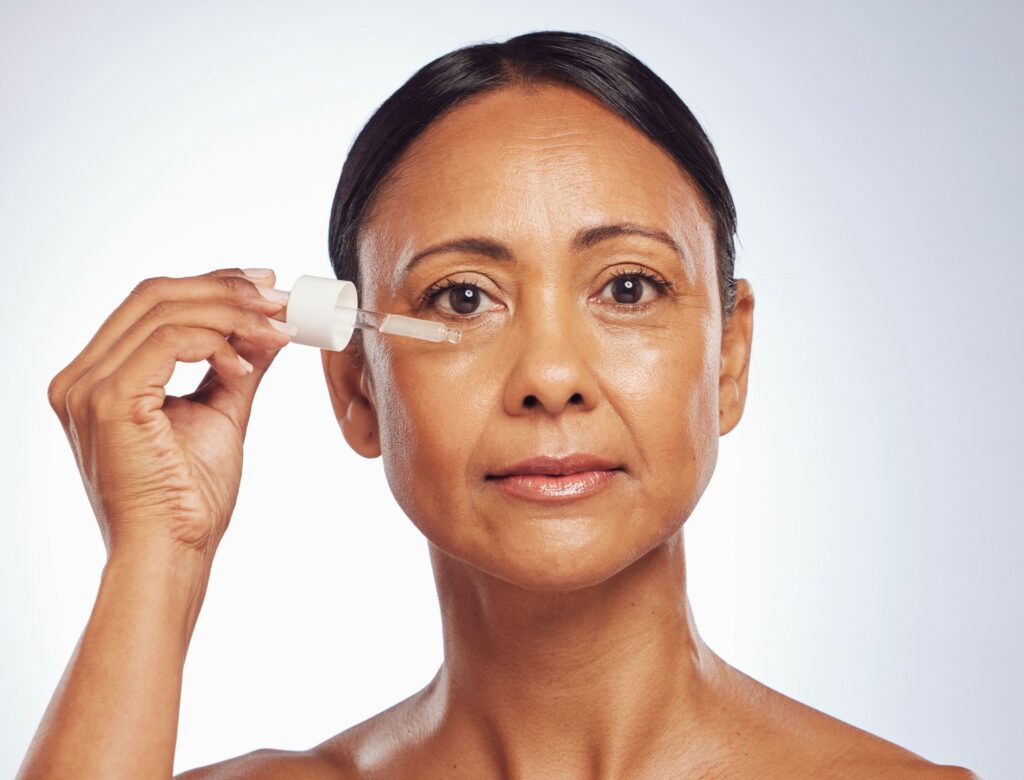Understanding the Different Chemical Exfoliants and Acids Used in Skincare

There are three types of chemical exfoliants, all used to remove dead skin cells, which improves the skin’s appearance. Hyaluronic Acid (HA) is involved in skin tissue repair. However, when attempting to use these acids in your skincare routine, it is wise to understand the difference and know how to respond to a bad skin reaction. Dermatologists always suggest an office visit to determine your skin type, address skin concerns, and ensure that these chemical exfoliants will be the best to achieve the desired results.
AHAs
AHA exfoliants are water-based and water-soluble, primarily working the skin’s outermost layer of skin. AHAs are effective in getting rid of skin cells that are dead and will likely improve the texture of the skin. Additionally, AHAs prompt collagen production, are ideal for dry and sun-damaged skin and can counter signs of aging.
Glycolic acid is an AHA that comes from sugar cane. Other AHAs you may recognize are lactic acid, tartaric acid, and citric acid, derived from sour milk, grapes, and citrus fruits. AHAs are best for normal combination or oily skin. For dry and sensitive skin, it is best to use PHAs, which have larger molecules and are milder.
BHAs
BHAs are oil-soluble and will penetrate the deeper layers of the skin. BHAs will remove dead skin cells, excess sebum, and oils, which can cause acne breakouts. BHAs also have anti-inflammatory properties, which may be found in many skincare products. Typically, BHAs are best for oily and combination skin that may be acne-prone. It is surprising how many people think they have oily skin when they have overactive sebum production due to improperly moisturized dry skin. If you can work with a local, experienced dermatologist, you can save time and money and get personalized, personal results.
Salicylic acid is a BHA derived from willow bark. The benefits can help fend off environmental stressors, help counter skin damage, help against white and black heads, exfoliate, and dissolve skin debris that clogs pores. Salicylic acid can be used daily but should be stopped immediately if the skin reacts negatively. Dry and sensitive skin may have an adverse reaction to BHAs.
PHAs
One of the main distinguishing things between PHAs and AHAs is that the molecules are larger in PHAs but also work on the surface layer of the skin. PHAs remove dead skin cells, which will improve the skin’s texture and tone. PHAs are mild and gentle on the skin, ideal for dry and sensitive skin types. If you have never used a chemical exfoliant, PHAs are the mildest. However, if you do not have dry skin, you may not see the results you desire.
Benefits of Hyaluronic Acid
Some of the benefits of applying hyaluronic acid topically have been shown to hold and retain moisture, reduce signs of aging, reduce inflammation and irritation, and make skin more radiant with a more even texture when used over time.
AHAs V BHAs
When comparing AHAs and BHAs, it is often referred to as AHAs being the acid that unglues impurities from the skin’s surface. BHAs, on the other hand, go deeper into the pores and help unclog them which helps treat blackheads, acne, ingrown hairs, and enlarged pores. BHAs have antibacterial qualities and will soothe inflammation and redness. BHA is the best acid for oily and acne-prone skin types because it breaks down oils on the skin. AHAs are water-soluble, so they must be used with sunscreen, although daily sunscreen should be part of everybody’s daily skincare routine. AHAs are used to treat acne scars, inconsistent texture and tone on the skin, and hyperpigmentation. AHAs brighten skin, stimulate collagen production, and help hydrate skin and reduce fine lines. AHAs are best for normal or combination skin types.
With all the talk about acids, chemical exfoliants, skin types, and how to treat skin, you should visit a local dermatologist for any skincare concerns. Many people do not think about going to a professional dermatologist, and when they do, they realize they could have saved frustration, time, and money. If you are in Atlanta, Buckhead Dermatology cares about every client and wants them to achieve their ideal skin and will continue to work to find skincare solutions. Call today for an appointment with Dr. Sherrie Straughn, who has been practicing dermatology in Atlanta for more than 25 years. She recognizes the importance of feeling confident in one’s skin and works diligently to help every client overcome their unique skincare challenges. Many insurance companies cover dermatology visits, and Buckhead Dermatology accepts many insurance carriers and finds affordable solutions for every client. We are accepting new clients, so call today for an office consultation and get the skin you want.
